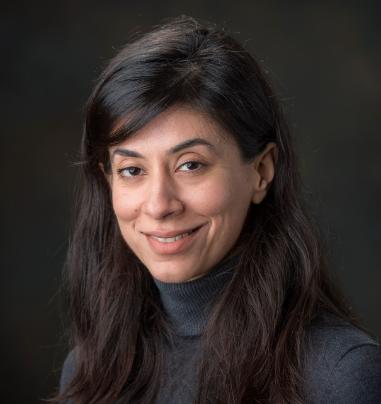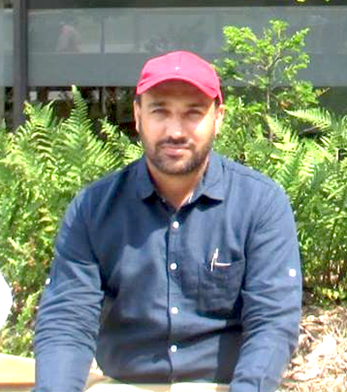The South Asian Studies Institute’s (SASI) Research Fellowships foster the development of evidence-based research to inform educators, policy developers, organizations and other stakeholders regarding key contemporary issues within the diasporic South Asian community.
The Fellowship will bring together (up to five) inter-disciplinary scholars (located both within UFV and external to the University) for a period of two years (or less) to create a nexus point for particularly designed research and related activities. The Fellows will be research scholars with a background on the South Asian Canadian Diaspora and Canada/South Asia relations. Fellows will have made contributions to diaspora-related issues in one of the following areas: public policy, business and economic development, arts and culture, civil society, political science, global development, the social sciences and humanities.
Fellows will undertake research on SASI directed projects (for up to two years on a topic), with a goal of gathering research-based evidence and providing recommendations for SASI to further the issues and inform pertinent stakeholders. Fellows will work on applied research with the expectation that the outcomes from the Fellowship will assist in providing key findings for stakeholders as they work to find long-term, sustainable solutions to issues, and will inform best practices for appropriate responses.
To view full terms of reference, please click:
2024-2025 South Asian Research Fellow
Dr. Anushay Malik
Dr. Anushay Malik, Senior Lecturer at Simon Fraser University, led the South Asian Muslims in BC research project focused on documenting the history of South Asian Muslims in British Columbia. Her work included developing a historical timeline and supporting the creation of the online exhibit. She brings a wealth of knowledge, lived experiences and research expertise as a young Muslim Canadian scholar.
In this project she contributed to building the research and its presentation. As well, she led the oral history component by training SASI student research assistants, conducting and supporting interviews with community members, and analyzing interview content for thematic presentation on the site. Dr. Malik helped connect the project with similar initiatives across Canada and collaborated with archival professionals and community historians to strengthen its research base and outreach.
The online exhibit South Asian Muslims in BC is currently under construction, a link will follow soon.

2023 South Asian Research Fellow
The South Asian (re)Migration from Africa Project was developed by the South Asian Studies Institute in 2022. The goal of the project was to gather the historical trajectories of South Asian Canadian families who (re)migrated from second and third countries from east Africa over the last century.
The Community Health and Social Innovation Hub (CHASI) and the South Asian Studies Institute jointly funded the Fellowship. Dr. Sarah Beaulieu, conflict anthropologist at UFV undertook the research to follow the journeys of Abdul Aleem, Fidah and Razia Haque, Munawar Sabir and Mohinder Singh, as each of their families depart from India in search of a better life. A set of interviews revealed the long and arduous journeys of the families to the Fraser Valley.
As the shadows of British colonialism followed, each navigated the challenges and setbacks of living in East Africa and England, before arriving at their final destination in the Fraser Valley, BC. The narratives are stories of strength, endurance, and courage.

2021 South Asian Research Fellow
Dr. Inderjeet Mann
Dr. Inderjeet Mann was the 2021 South Asian Research Fellow. During his fellowship, he developed a working paper series exploring the South Asian Canadian diaspora’s response to the farmers’ protests in India, with a particular focus on Punjab. He also served as an advisor for the documentary Rails, Jails and Trolleys, which chronicles the events leading up to the Indian farmers’ protests of 2020–2021.
Dr. Mann holds a Ph.D. in Political Science and International Studies from Jawaharlal Nehru University (JNU), Delhi. He has been affiliated with Simon Fraser University in a research capacity. His post-doctoral research, conducted at JNU and the South Asian Studies Institute, focused on the political participation of ethnic minorities in Canada. This work was funded by the Indian Council of Social Science Research and the Shastri Indo-Canadian Institute. His M.Phil. focused on the field of Human Rights.
Dr. Mann has taught political science at Jawaharlal Nehru University, the Central University of Punjab, and Government College, Bathinda. He served as a session chair at the 2014 World Congress of Political Science in Montreal and has also been involved with Amnesty International India as a member.
His current research interests include a focus on South Asian Canadian Diaspora and its issues and multifaceted aspects in Canadian state and society.
Dr. Mann was also the Peace and reconciliation Centre funded Visiting Scholar for 2021.
To read the blog on Dr. Mann's research,
click here. To view the documentary Rails, Jails, and Trolley's,
click here.
2020-2021 South Asian Research Fellows
Yvon Dandurand
Dr. Jonathan Heidt
Dr. Satwinder Bains
Project: Assessment of Sports-Based Crime Prevention Programs in British Columbia
UFV’s South Asian Studies Institute (SASI), with the financial support of the Crime Reduction Research Program, B.C. Ministry of Public Safety and Solicitor General, undertook an assessment of sports-based crime and violence prevention programs in our province.
Many sports-based youth programs claim to have an impact on crime prevention or on youth involvement in gangs. However, the concept of sport-based crime prevention is still in need of standardized definitions. There is also a critical need for further research and theory to identify the context and processes through which sport participation may contribute to crime prevention. For instance, further research is needed on the cognitive processes through which skills acquired through sport participation can be effectively transferred to other aspects of the participants’ life. Finally, few sports-based crime prevention programs, whether in B.C. or elsewhere, have been subjected to a rigorous evaluation. As a result, many of these programs may have overly ambitious crime prevention objectives, as well as vague rationales for their activities and limited evidence of their impact on youth crime.
This one-year project aimed to improve our understanding of the impact of sports-based crime prevention programs on youth crime and gang recruitment. The project developed the first inventory of sports-based crime prevention programs in this province, in particular in the Lower Mainland and Fraser Valley regions, and began to assess the extent to which current programs are aligned with best practices. Furthermore, the study assessed cultural and gender relevance, and sought to understand how these sport-based programs are integrated with other crime prevention initiatives, as well as exploring the sustainability of existing programs. The project also developed an evaluation framework and assessed the evaluability of existing programs. The project, led to the development of a training curriculum and training tools for coaches, leaders, and facilitators involved in creating and delivering effective sports-based crime prevention programs.
We acknowledge and thank the Ministry of Public Safety and Solicitor General for the funding this important work.
Click here to download the full report.
2019 South Asian Research Fellows
Yvon Dandurand
Dr. Amanda McCormick
Dr. Martha Dow
Dr. Satwinder Bains
The 2019 South Asian Research Fellowship Report developed a consultation with agencies, individuals and groups concerned with community safety. The goal of this fellowship was to develop a deeper understanding of the issues as they undertake innovative and targeted approaches to prevent gang related violence.
The work (consultation) undertaken in this report provided a focused approach to understanding violence prevention strategies aimed at South Asian Canadian youth that have been implemented in the Abbotsford region.
Recommendations made in this report helped support continuing efforts for engagement, dialogue, backing, and commitment to make our communities safer. As well, they allowed us to gain a better understanding of what more needs to be done.





